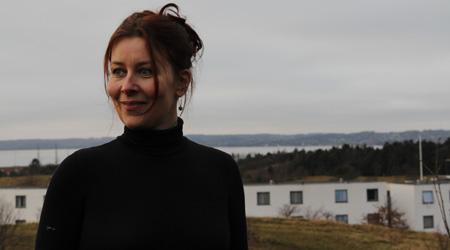Twenty years have passed, but I still remember the thrill, attending the Berlin Film Festival for the first time as a young film student, ready to throw myself into the world of film in all its aspects. I devoured exotic film programmes at remote art cinemas, feeling that I alone had discovered secret cinematic treasures. I shuffled around the European Film Market, taking in the frenzy, and I basked in sublime moments at the Berlinale Palast. It was like stepping through a mirror into a much-anticipated future. I returned home changed. Now I knew for sure where I was heading.
"Twenty years have passed, but I still remember the thrill, attending the Berlin Film Festival for the first time as a young film student."
Twenty years later, as principal of the European Film College, my task is to help the next generation reach a point where it becomes clear to them what road to travel. Every year a new group of students, with hopes, ambitions and dreams, arrives at the school and is given the opportunity, over 8 months, to discover who they are in terms of expressions, interests and talents. They will, if we succeed in our task, grow as human beings and in the process find their personal voice.
The growth of each individual student is a key focus of the Danish Folk High School philosophy. The European Film College is part of that system and shares that philosophy, which is based on a democratic approach to education. Students and faculty live on campus, which creates an environment that is not unlike a huge 24/7 film set. Tests and grades are replaced by coaching, evaluation and critical dialogue. With pluralism, tolerance and respect as core values, it is our experience that the coming together of students from very different cultures and backgrounds has a truly creative and productive effect, corresponding to a pluralistic view on the film medium and the recognition that art never consists of one answer or one truth. In this very intense and safe environment, students are encouraged to search for their limits, make mistakes and explore their personal material to make their voices more distinct.
To me, that is our main challenge as a film foundation course. The present generation faces a media reality flooded with visual stories: the exclusivity of film media is long gone. Anybody can produce and distribute material. To begin your journey as a filmmaker, it is essential to recognize the necessity of having and nurturing a distinct voice in your choice of material and in your expression. When a student succeeds in that task and suddenly shines brightly, it is – as any teacher will know – one of the most rewarding and moving moments there is.
For a distinct voice to be heard in the real world, however, it is just as important to prepare the students for the reality of the business. Recognizing the importance of being engaged with your material, yet remaining very flexible when it comes to budgets, running times, formats and distribution methods, is key. It is also essential to truly understand that, to become a filmmaker, you have to make films and that film production requires strength, responsibility and teamwork.
The big festivals like Berlin provide an opportunity to sense where the industry and also the art form are heading. So, this year I return to the Berlinale with 115 EFC students, a new generation of young filmmakers who are in for an overwhelming and transformative experience. Watching films, meeting filmmakers, attending master classes and visiting the European Film Market will confront them with the various facets of today’s film business. I am certain it will be a rewarding encounter that will still be vivid 20 years from now
